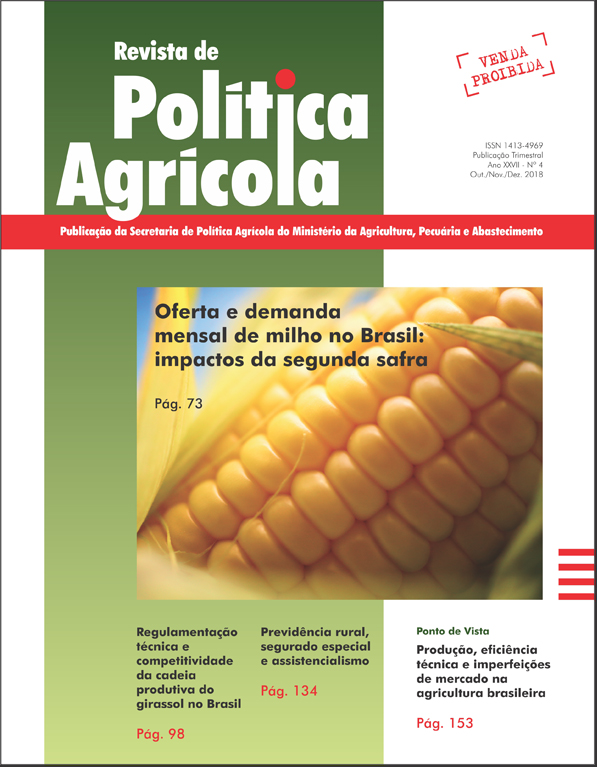Analysis of the mango productive chain in the municipality of Petrolina, Pernambuco
Keywords:
non-tariff barriers, performance indicators, policy analysis matrix.Abstract
The present study aimed to analyze the behavior of the production chain of mango exported to the United States, through the use of private and social indicators, from the perspective of Policy Analysis Matrix (PAM), in Petrolina-PE corridor to the port of Salvador; as well as the role of public policy on the studied chain. The producers that have been studied in the case were divided in three groups. Six accounting matrices were calculated using data from three groups considering and excluding expenses on non-tariff barriers related to the fruit exportation to the US market. Thus, the analysis of the results shows that, in all the links of the chain, the private and social profitability and economic efficiency of the system are positive for all groups considering whether or not spending on non-tariff barriers, even occurring producer income transfer to society and taxation in the chain. Thereby, the three groups analyzed have competitive and comparative advantages, even with the performance of negative effects of public policies and non-tariff barriers imposed by the US government for the import of Brazilian mango. The presented competitiveness could be higher if there were the US import requirements.Downloads
Published
2019-06-12
How to Cite
Araújo, W. B. C., Campos, R. T., & Campos, K. C. (2019). Analysis of the mango productive chain in the municipality of Petrolina, Pernambuco. Revista De Política Agrícola, 27(4), 122. Retrieved from https://rpa.sede.embrapa.br/RPA/article/view/1344
Issue
Section
Artigos Científicos

